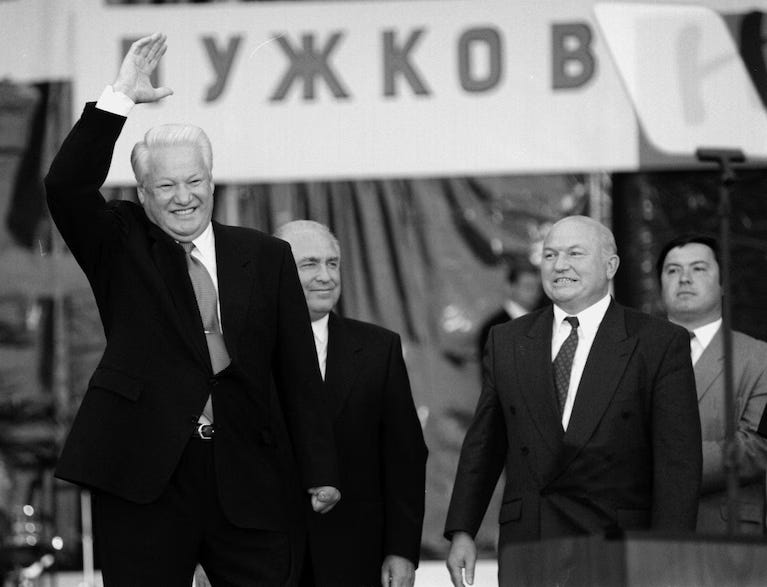Yves here. Not being a TV watcher, I cannot opine on the use of The Wire as an example of how things work. But some shows have seemed to have had a bit of social impact via their uncomfortable degree of verisimilitude. Even though The Survivor put the participants in a fake setting, many found the resulting human dynamics riveting since they were often more raw versions of what viewers experienced in their real lives. Sex and the City presented a glammed up fantasy of sexually very active women, and it allegedly had cultural influence. I can imagine readers will have examples like West Wing, to add to the case study of The Wire, so please pipe up.
As an aside, having looked only at the embedded clip, no competent litigator would have allowed Omar to grandstand like that. He would have quickly limited him to yes or no answers. Similarly, having concentrated in the Industrial Revolution period in England and France, I also disagree with Neuburgers’s take on the French Revolution. Yes, I have repeatedly pointed out that it took nearly 100 years to achieve a durable republic, in the form of the Third Republic. But as experts have described based on extensive archival research, the people of France, 10 years after the Revolution, the male adult population saw themselves as citizens, and no longer as subjects of a king. The extensive bureaucratic reforms Napoleon implemented, from the creation of arrondissements to the standardization of education to implementing meritocratic access to elite institutions, survived his rule and became foundational elements in France’s modernization. So the break with the monarchy as formerly constituted was durable, despite the Bourbon Restoration of 1815 to 1830. Consider this snippet from a high level summary of the history of that regime:
On becoming king, Louis issued a constitution known as the Charter which preserved many of the liberties won during the French Revolution and provided for a parliament composed of an elected Chamber of Deputies and a Chamber of Peers that was nominated by the king.
A constitution, the Charter of 1814, was drafted; it presented all Frenchmen as equal before the law, but retained substantial prerogative for the king and nobility and limited voting to those paying at least 300 francs a year in direct taxes…
Despite the return of the House of Bourbon to power, France was much changed; the egalitarianism and liberalism of the revolutionaries remained an important force and the autocracy and hierarchy of the earlier era could not be fully restored.
Neuburger may argue that confirms his thesis that change was slow. But we are seeing that in comparison to our modern end state and projecting that backwards. Even the shift from an absolute hereditary monarchy to a constitutional monarchy with citizens having substantial rights assured by law was a massive shift in and of itself.
By Thomas Neuburger. Originally published at God’s Spies
“You want it to be one way. But it’s the other way.” How should we respond to that?
“Why would a shelter provider want to end homelessness when it depends upon the existence of the homeless to pay its bills, including the occasionally exorbitant salaries that go to its executives?”
—The Chronicle of Philanthropy, here
“The decision maker acts as if he sees only one kind of success and one kind of failure. He sees his own humiliation, or loss of office or power as catastrophic. The massacre of ‘others’ is seen by men in power as secretly available to them as an instrument of power, although they publicly acknowledge norms that rule this out as ‘unthinkable.’”
—Daniel Ellsberg, reflecting on why the Vietnam War was prolonged (lightly edited, quoted from here)
“[All institutions] operate according to the Iron Law of Institutions: the people who control institutions care first and foremost about their power within the institution rather than the power of the institution itself. Thus, they would rather the institution “fail” while they remain in power within the institution than for the institution to “succeed” if that requires them to lose power within the institution.”
—Jon Schwarz, A Tiny Revolution
“You want it to be one way. But it’s the other way.”
—Marlo Stanfield in The Wire
Because of the recent news and what I’ve been reading and watching these days, I’ve been led to consider the tendency of every group to stabilize itself as it’s currently constructed and resist sudden change.
Always There’s Change, But Slow
Change occurs everywhere, of course, as I talked about here:

The Culture of the CIA, a First Look
MAY 1
Read full story
It can’t be avoided. Word pronunciation drifts from region to region; government-as-practiced changes (see also here); beliefs evolve or recycle. But sudden change, change that makes the beneficiaries of “stability” uncomfortable — or worse, puts them out of a job — is strongly resisted. By individuals, by groups, by whole societies. By social masses of people and also their structures. Acting deliberately and also organically.
The only sudden change the masters of society want, is what benefits them.
Insurrection vs. Real Revolution
This truth is baked into the way humans operate, especially in large groups: Unless people are truly suffering, they don’t want sudden change, and their societies are built to resist it.
That fact, in fact, is enshrined in our founding documents. From the Declaration of Independence:
[A]ll experience hath shewn, that mankind are more disposed to suffer, while evils are sufferable, than to right themselves by abolishing the forms to which they are accustomed.
Insurrections are often sudden; they succeed or they fail. But even in success, the pre-revolutionary culture generally prevails. “Rule by landed gentry” marked the United States both before and after the states split from their creator. The French Revolution produced two emperors. Russia replaced a tsar with another tsar, and “rule by tsar” prevails there even today (with a little help, admittedly, from Bill Clinton’s America; see also here).

Insurrections are quick, but real revolution, real change, is markedly slow.
The World of ‘The Wire’
I just finished a multi-week binge-watch of all of The Wire, the mid-2000s television show about life for the working- and under-class in Baltimore — the put-upon masses of people, in other words — and how they get by.
The show is filled with people who “buck the system,” try to make things genuinely better. Some succeed in the margins: A teacher influences a child. A boy is rescued. Among the Greek tragedy characters (Sobotka and Omar), we see comic survivors (The Bunk), and personal redemption miracles (Bubbles, of course). Good things, in short, occur.
But the culture as a whole just moves as though self-directed, like a wandering, lazy big river, high mass and low force. All attempts to change it, no matter where tried, in major part always fail. The police end up ruled by a hack, just like before. No politician, when pressed, colors outside the lines of their personal ambition. The drug bosses change their ways, but minimally. They get better (Stringer Bell), then worse (Marlo Stanfield), then marginally better again (Slim Charles).
But the game is the game, for rich and poor alike. They know it. They work within it. They win or they lose, but no one defeats the game. They’re just in it or not.
Human group culture, a wandering lazy big river. In fifty years things may be better. The river may move. But don’t expect it next week.
The Life We Live
The Wire is admittedly fiction and set in culture that one character says looks like hell. But the lesson is elsewhere the same.
I live in downtown Portland, Oregon’s signature city. Over years, the homeless situation and drug usage patterns have evolved from bad to much worse — spurred by a lab-made virus, cheap fentanyl (anecdotally, a dollar a hit), and the inability of anyone in power to act in a way that doesn’t risk funding or place.
There is leadership in-fighting, entrenched non-profits, disinterested pro-right-wing cops, and sudden policy changes (Measure 110) without forethought on how to properly implement it.
Over time cities get cleaned up. Mid-century Montreal is a good example; same with Portland if you look back far enough.
But the process takes a while.
All This Is to Say…
All this is to say: You can want to move a river or make deserts green, and it’s noble to try. But appreciate that a big enough task will outlive your life.
Not that it’s not worth doing, these big enough tasks, if that’s what you want to do. I’m always a fan of freedom. But know what you’ve signed up to do and plan accordingly.
This isn’t to say that the world has no miracles left. It always has those. And there’s no reason not to be happy unless you’re in great pain. But being personally happy, a great and worthy accomplishment, and seeing the world as the world, are not incompatible.
This observation needn’t determine how we respond emotionally. I’m personally happy as I’ve ever been. My novels are great fun to write, and no one I know is dying; at least not yet.
This is just about the world, what we do in large groups.
Be Happy. Be Wide Awake.
About the last point: As we face what’s before us — Gaza, the next election, our horrible empty choices; the pathological rich and their death grip on climate; the fact that attempts to topple greed-worship and predation are often initially blocked by both victims and perps — we should face all this, as souls, with an equanimity that equals our understanding, while being our best.
Does death make life less sweet? It shouldn’t, and we shouldn’t let it.
“There is nothing either good or bad but thinking makes it so.” It’s possible to be happy and also wide awake. Strive to be both.


